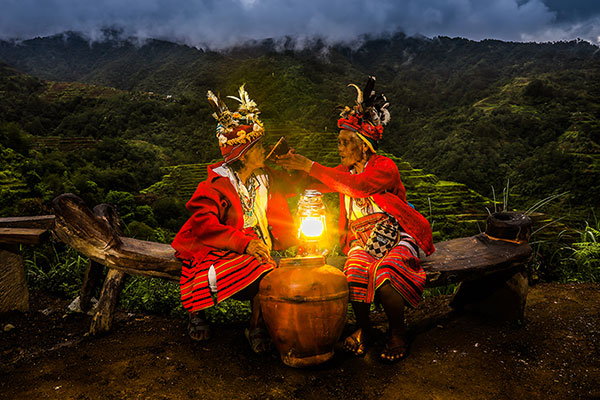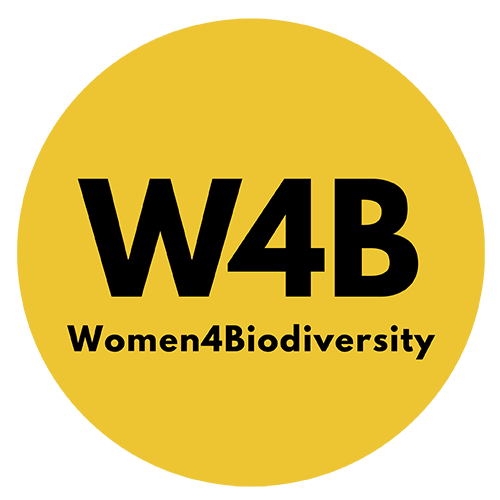Image credit: Karen Environmental and Social Action Network (KESAN)
WHAT
This is the fifth webinar in the Restore Her Rights Initiative Webinar Series. This webinar will celebrate Indigenous women’s leadership in restoration in honour of World Indigenous Peoples Day (9 August) and International Day of Indigenous Women (5 September). It will highlight their traditional knowledge, traditional ecological knowledge (TEK), land stewardship, and resilience, emphasising the need for inclusive policies and practices that respect and uphold their rights.
WHEN
Friday, 26 September 2025, from 12.00 pm to 1.30 pm UTC. Please check your timezone here.
WHERE
Online event. Register for the event.
WHO
- Rodah Chepkopus Rotino, Founder and Executive Director, Pastoral Communities Empowerment Programme (PACEP), Kenya
- Sushmita Lama, Indigenous Women’s Rights Expert, Nepal
- Apurwa Sailja Kachhap, Senior Project Manager, LME and Research, Foundation for Ecological Security (FES)
- Rubina Pradhan, Restore Her Rights Coordinator, Women4Biodiversity – Moderator
WHY
- To learn more about Indigenous women’s traditional ecological knowledge.
- To advocate and amplify their roles in land stewardship and resilience.
- To advocate for policies and practices that are inclusive and uphold their rights.
This webinar is part of a larger series, “Restore Her Rights Initiative Webinar Series,” from April to October. The series focuses on advancing gender equality and women’s roles in ecosystem restoration, addressing barriers, and promoting gender-responsive policies.


Espanol
QUÉ
Este es el quinto seminario web de la serie de seminarios web de la iniciativa Restore Her Rights. Este seminario web celebrará el liderazgo de las mujeres indígenas en la restauración en honor al Día Mundial de los Pueblos Indígenas (9 de agosto) y al Día Internacional de las Mujeres Indígenas (5 de septiembre). Destacará sus conocimientos tradicionales, sus conocimientos ecológicos tradicionales, su gestión de la tierra y su resiliencia, haciendo hincapié en la necesidad de políticas y prácticas inclusivas que respeten y defiendan sus derechos.
CUÁNDO
Viernes, 26 de septiembre de 2025, de 12:00 a 13:30 UTC. Por favor, compruebe su zona horaria aquí.
DÓNDE
Evento en línea. Inscríbase en el evento.
QUIÉN
- Rodah Chepkopus Rotino, fundadora y directora ejecutiva del Programa de Empoderamiento de las Comunidades Pastorales (PACEP), Kenia.
- Sushmita Lama, experta en derechos de las mujeres indígenas, Nepal.
- Apurwa Sailja Kachhap, directora sénior de proyectos, LME e Investigación, Fundación para la Seguridad Ecológica (FES).
- Rubina Pradhan, coordinadora de Restore Her Rights, Women4Biodiversity – Moderadora.
POR QUÉ
- Para aprender más sobre los conocimientos ecológicos tradicionales de las mujeres indígenas.
- Para defender y amplificar su papel en la gestión de la tierra y la resiliencia.
- Para promover políticas y prácticas inclusivas que defiendan sus derechos.
Este seminario web forma parte de una serie más amplia, «Restore Her Rights Initiative Webinar Series», que se celebra de abril a octubre. La serie se centra en promover la igualdad de género y el papel de las mujeres en la restauración de los ecosistemas, abordar las barreras y promover políticas que tengan en cuenta las cuestiones de género.
Francais
QUOI
Il s’agit du cinquième webinaire de la série de webinaires de l’initiative « Restore Her Rights ». Ce webinaire célébrera le leadership des femmes autochtones en matière de restauration, en l’honneur de la Journée mondiale des peuples autochtones (9 août) et de la Journée internationale des femmes autochtones (5 septembre). Il mettra en lumière leurs connaissances traditionnelles, leurs connaissances écologiques traditionnelles, leur gestion des terres et leur résilience, en soulignant la nécessité de politiques et de pratiques inclusives qui respectent et défendent leurs droits.
QUAND
Vendredi, 26 septembre 2025, de 12 h à 13 h 30 UTC.Veuillez vérifier votre fuseau horaire ici.
Où
Événement en ligne. S’inscrire à l’événement.
QUI
- Rodah Chepkopus Rotino, fondatrice et directrice exécutive du Pastoral Communities Empowerment Programme (PACEP), Kenya.
- Sushmita Lama, experte en droits des femmes autochtones, Népal.
- Apurwa Sailja Kachhap, chef de projet senior, LME et recherche, Foundation for Ecological Security (FES).
- Rubina Pradhan, coordinatrice de Restore Her Rights, Women4Biodiversity – Modératrice
POURQUOI
- Pour en savoir plus sur les connaissances écologiques traditionnelles des femmes autochtones.
- Pour défendre et amplifier leur rôle dans la gestion des terres et la résilience.
- Pour plaider en faveur de politiques et de pratiques inclusives et respectueuses de leurs droits.
Ce webinaire fait partie d’une série plus large, « Restore Her Rights Initiative Webinar Series », qui se déroule d’avril à octobre. Cette série vise à promouvoir l’égalité des sexes et le rôle des femmes dans la restauration des écosystèmes, à lever les obstacles et à encourager les politiques sensibles au genre.
Event Summary
In honour of World Indigenous Peoples Day (August 9) and International Day of Indigenous Women (September 5), the fifth webinar celebrated Indigenous women’s leadership in restoration. It highlighted their traditional knowledge, traditional ecological knowledge (TEK), land stewardship, and resilience, emphasising the need for inclusive policies and practices that respect and uphold their rights.
For this webinar, the topic focused on Indigenous Peoples’ and Traditional Knowledge and TEK, land stewardship, and resilience. It is important to note that the UN Decade for Restoration, as well as the Kunming-Montreal Global Biodiversity Framework (KM-GBF), both recognise the significance of the role played by Indigenous Peoples in restoration and the traditional knowledge they hold regarding sustainable use of resources. Furthermore, the KM-GBF ensures participation in decision-making and access to justice and information related to biodiversity for all outlined in Target 22. This target focuses particularly on ensuring that everyone – including Indigenous Peoples and Local Communities, women and girls, youth, children, and persons with disabilities has fair and meaningful participation in decisions about biodiversity. Target 22 spotlights that they should also have access to justice and information, with full respect for their cultures, rights to land, resources, and traditional knowledge. It also ensures that environmental human rights defenders must be fully protected (Source: Target 22).
In most cases, Indigenous Peoples’ and Local Communities (IPs and LCs) have a cultural and holistic understanding of nature based on their traditional knowledge, TEK, practices and innovation. Understanding biodiversity is crucial for its conservation and sustainable use. The knowledge held by indigenous and local communities about their ecosystems is crucial to developing effective conservation initiatives. Restoration initiatives must, therefore, integrate cultural values and traditional governance, encompassing sustainable practices like resource management, traditional hunting and fishing, and selective harvesting.
Thus, this webinar focused on the work being carried in the ground by champions and practitioners on Indigenous women, IPs and LCs and their practices in upholding restoration.
Women’s voice and agency in governance
Apurwa Kachhap’s presentation “Women’s Voice and Agency in Governance” highlighted the central role of women, particularly from tribal, Scheduled Caste, and forest-dwelling communities, in managing and preserving common pool resources such as forests and pasturelands. Her presentation set the stage for the webinar, highlighting that these resources are vital for rural survival, with women contributing significantly through collection and management activities. Despite their critical involvement, women often lack access to decision-making power due to entrenched patriarchal norms. The presentation emphasised that securing tenurial and management rights over commons is crucial for empowering communities, and the inclusion of women in governance systems ensures the sustainable and equitable management of these resources.
Her research, conducted across 15 villages in four Indian state,s demonstrated women’s leadership and collective action in protecting and restoring common resources. Women’s groups have formed usage rules, managed plantations, prevented encroachments, and promoted sustainable practices. She stressed that these actions have increased participation and leadership among women, generating both economic and environmental benefits. However, structural barriers, including gender biases and caste hierarchies, continue to limit women’s full agency. She concluded that government and civil society initiatives have created spaces for rural women’s leadership, yet achieving genuine gender equity in commons’ governance requires addressing deep-rooted social and institutional obstacles.
Her presentation brought sharp focus to the roles of women, especially those belonging to indigenous communities and marginalised groups. Following Kachhap’s presentation, the next panel discussion moved towards the Convention on the Elimination of Discrimination Against Women (CEDAW) General Recommendation No. 39 (2022) on the rights of Indigenous women and girls.
Sushmita Lama, an Indigenous Women’s rights expert, highlighted the critical role of Indigenous Women and their TEK in achieving effective ecosystem restoration. She introduced the CEDAW General Recommendation 39 (GR 39) as a groundbreaking international instrument dedicated to the rights of Indigenous women and girls. This framework was presented as a vital tool to legitimise the demands of Indigenous women and girls to hold states accountable for rights violations, and bridge local environmental and social struggles with global human rights standards.
The presentation outlined a clear, two-pronged strategy for action. The first goal is to strengthen the rights and influence decision-making. Lama highlighted the importance of integrating GR 39 into national policies, utilising CEDAW reporting to highlight violations, and advocating for quotas to ensure the representation of Indigenous women in local governance and global forums. The second strategy focused on spotlighting the significance of influencing decision-making by ensuring Indigenous women have representation at all levels, from local governance bodies to national parliaments and global forums. To support this, Lama advocated for practical strategies, such as capacity-building workshops, regional networking, and cross-community exchange programs, to build a strong, collective advocacy movement. A foundational principle is that all advocacy and restoration must be grounded in Indigenous Knowledge and culture to ensure relevance, ownership, and the amplification of Indigenous women’s vital leadership.
It must be considered that gender equality, Indigenous women’s leadership, and TEK are inseparable from successful environmental action. Lama emphasised that efforts must be grounded in Indigenous culture and knowledge to ensure relevance and ownership, and that by leveraging the power of CEDAW GR 39 and building robust networks, Lama spotlighted the amplification of Indigenous women’s voices to advance both ecosystem restoration and gender justice simultaneously.
Traditional Knowledge and TEK in practice: Indigenous women as leaders of ecosystem restoration
Rodah Chepkopus Rotino from the Pastoral Communities Empowerment Programme (PACEP) provided a concrete case study from the Pokot community in Kenya, illustrating how Indigenous women are leading practical ecosystem restoration. Rotino discussed the traditional seasonal calendar as a critical tool, which women elders used to guide planting, harvesting, and pastoral mobility based on ecological indicators. It was emphasised that this seasonal calendar is a living record of knowledge, passed down from generation to generation, and it links ecological indicators with cultural practices such as songs, rituals, and stories. Her session called on the significance of preserving ancestral knowledge – she highlighted that when young people and elders come together to document traditional knowledge and TEK, they strengthen Indigenous and Local Knowledge, ensuring its survival in the face of climate change and other anthropogenic uncertainties.
Her presentation was a fascinating study into how Indigenous women serve as knowledge keepers and are crucial to maintaining ecosystem health in their communities. For instance, her presentation highlighted how Pokot Indigenous women led biodiversity restoration at Kamatira forest in partnership with Women4Biodiversity by planting indigenous trees and reviving degraded ecosystems. Likewise, the Pokot women ensured food production by utilising traditional farm management techniques and food preservation methods that guaranteed household nutrition, maintained seed banks, and practised sustainable water management. This highlights how the Pokot women are custodians and practitioners of ecological knowledge, and thus, it is crucial to amplify their voices during decision-making and in promoting intergenerational leadership roles.
Her presentation also detailed significant challenges that limit women’s full participation, including a lack of land ownership, limited access to financial credit, and exclusion from decision-making councils. To address these issues, Rotino proposed local solutions, including establishing women-led community land trusts, bridging customary and statutory law, and providing training in resource mobilisation. The presentation concluded by advocating for the integration of Indigenous knowledge into climate and biodiversity policies through community-led documentation, dialogue with scientists, and ensuring Indigenous women have a direct seat at the table in policy-making forums from the local to the global level.



